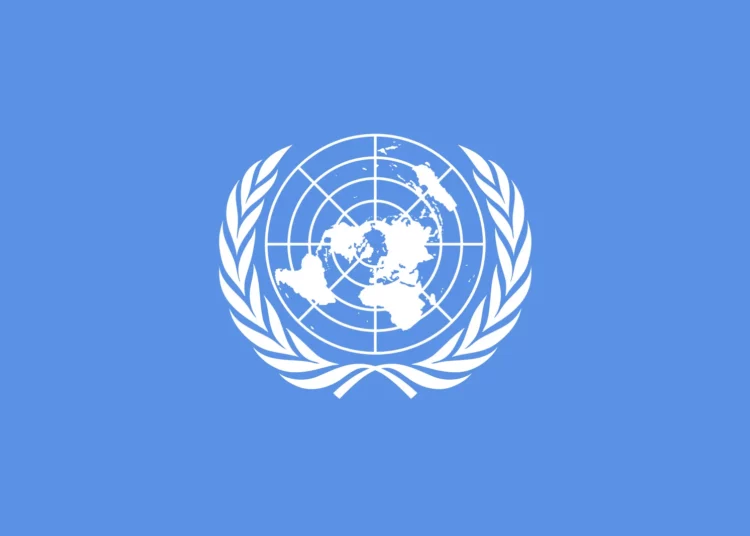When the latest United Nations (UN) World Population Prospects report was released recently, many Nigerians dismissed it as another dismal reminder of how stifling life has become. The report ranked Nigerians as having one of the lowest life expectancy rates globally, at just 54.9 years.
The UN report highlights that sub-Saharan Africa continues to bear the greatest burden, with 22 of the 25 countries with the lowest life expectancy located in the region. Lesotho (57.8 years), Somalia (59.0 years), and Mali (60.7 years) also feature among the lowest.
A historical look at life expectancy in Nigeria shows a gradual increase since independence: approximately 37.2–38 years in the 1960s; around 40 years by the 1970s; 45.3 years in the 1980s; 50 years in the 1990s; 52 years in the 2000s; 54.5 years in the 2010s; and 54.5 years again in 2023. The report shows Nigeria has consistently remained far below the global average: 52.5 years in the 1960s; 58 years in the 1970s; 60.5 years in the 1980s; 64.5 in the 1990s; 67 years in the 2000s; 70 years in the 2010s; 70.1 in the 2020s; and a projected 73.5 years in 2025.
What this means, in effect, is that the average Nigerian can expect to die about 20 years earlier than their counterparts in other parts of the world.
Decades of official corruption, unequal resource distribution, poor standards of education and healthcare delivery, inadequate infrastructure, a high burden of communicable diseases such as malaria and lower respiratory infections, poor access to quality medical care, and high maternal and infant mortality rates are symptoms of systemic poor governance.
Other contributory factors include socio-economic factors such as extreme poverty, malnutrition, and environmental degradation, including poor sanitation and pollution.
The life expectancy report is not the only one placing Nigerians near the bottom of global rankings on living conditions.
A recent UNICEF report listed Nigeria as having the highest number of malnourished individuals in Africa and the second-highest number of stunted children worldwide. Nigeria accounted for over 16.5 per cent of the continent’s total in 2023, with 45.4 million people affected. Malnutrition is either a direct or underlying cause of 45 per cent of all deaths of children under five in Nigeria.
Another alarming report shows that Nigeria accounts for the second-highest number of maternal deaths globally and the highest estimated maternal mortality rate, responsible for approximately 29 per cent of all maternal deaths worldwide.
Yet another disturbing statistic ranks Nigeria as having the highest number of out-of-school children globally, with estimates reaching 20 million when both primary and secondary school-aged children are included.
Regarding terrorism, there has been some improvement. Nigeria is now ranked sixth globally among countries affected by terrorism, according to the 2025 Global Terrorism Index (GTI). This is a significant improvement from third position in 2020. In terms of unemployment, youth unemployment stood at 53 per cent in early 2023, according to another index, second only to South Africa.
Another telling indicator of widespread poverty is contained in a report covering the period from late 2021 to early 2025. The Nigerian Deposit Insurance Corporation (NDIC) revealed that 99.4 per cent of Nigerians’ bank accounts had balances of less than 500,000.
In the latest sobering report, Nigeria—Africa’s most populous nation and one of its richest in natural resources—now has over 139 million people living below the poverty line. This staggering figure, representing more than 60 per cent of the population, highlights the economic hardship endured by ordinary Nigerians. In 2019, 133 million Nigerians were reported to be living in multidimensional poverty, which accounts for approximately two-thirds of the country’s population of 200 million.
All of these grim statistics contribute to the declining life expectancy of Nigerians. This is despite the country’s immense potential and wealth, particularly in oil, gas, solid minerals, and vast tracts of arable land. Yet successive governments have failed to convert this potential into meaningful improvements in the lives of the majority.
Despite the present government’s insistence that Nigeria is turning a corner in terms of economic recovery, the latest poverty report serves as a stark reminder that the macroeconomic gains it touts have not trickled down to ordinary citizens—a fact underscored by the report itself.
The President of the World Trade Organisation (WTO), Dr Ngozi Okonjo-Iweala, echoed this sentiment. While commending the Tinubu administration for its efforts to stabilise the economy, she urged it to pursue inclusive growth that benefits the broader population.
Governments at all levels must implement comprehensive, long-term reforms to enhance living conditions and increase life expectancy in Nigeria. These efforts should focus on increasing the productivity of household enterprises and improving access to essential services, including food, healthcare, education, electricity, water, housing, and sanitation.
Other critical priorities include tackling corruption, enhancing access to quality education and medical care, and addressing unemployment, underemployment, and insecurity. The practice of allocating billions and trillions of naira to White Elephant projects to score cheap political points should be discarded.
Furthermore, the government must ensure the payment of a living wage—by itself and other employers—and contain the current inflationary pressures that have eroded households’ purchasing power.
Governments at the federal and local levels must also design and implement effective social safety nets to support the most vulnerable, going beyond the ineffective programmes currently in place.
In our opinion, addressing systemic corruption is vital. Given Nigeria’s undeniable wealth and resources, there is more than enough to meet the needs of its people—but not enough to satisfy the greed of its leaders.





